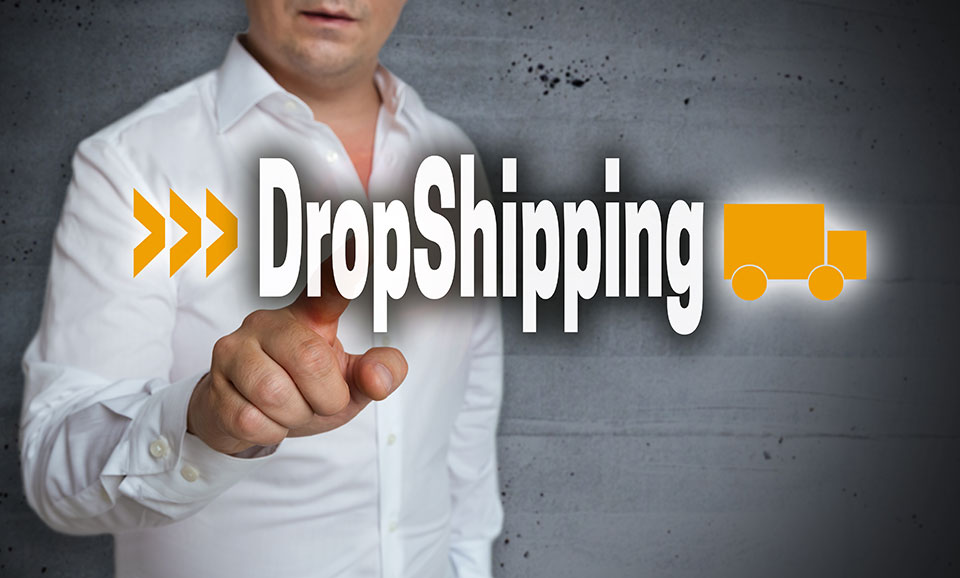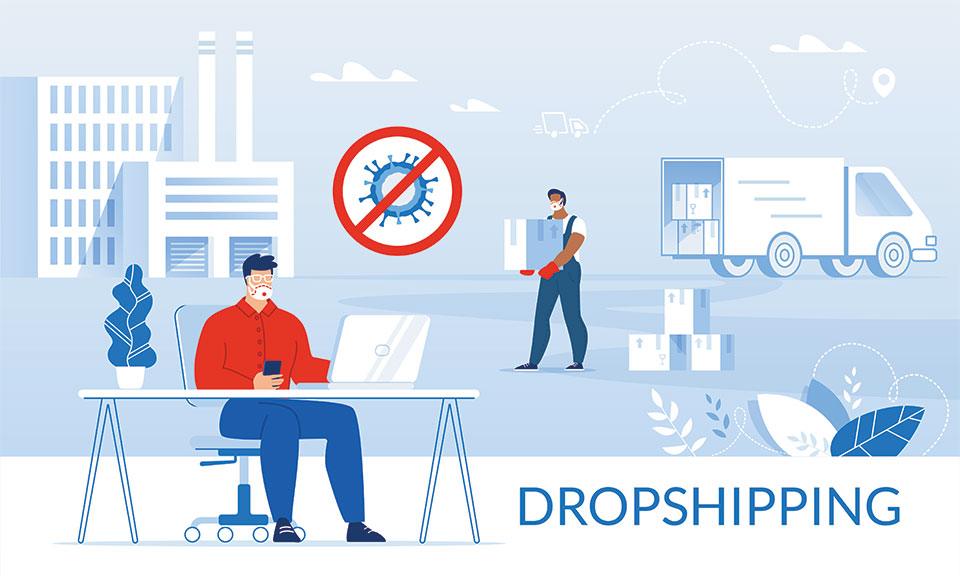5 Things to Know When Choosing a Dropshipping Supplier

Although the world economies and employment rates reeled initially from the COVID-19 crisis, one area that remained strong in 2020 and should continue to do so in 2021 was eCommerce. According to Forbes, eCommerce in North America grew 129% year over year in April.
One area of eCommerce that saw particularly robust growth was dropshipping. A dropshipping merchant does not need to stock inventory, like other retailers, but simply offers products on an eCommerce platform, takes orders from customers, and sends these orders to be fulfilled by a dropshipping supplier. The success of dropshipping depends on feature marketing rather than brand loyalty.
What Is the Relationship between Dropshipping and Feature Marketing?
Brand loyalty has been a dominant concept in marketing. However, the COVID-19 crisis has changed this. Part of the transition from brand marketing to feature marketing occurred prior to 2020 with the upward trajectory of eCommerce and the more significant online choices.
However, the interference with supply chains created by the pandemic led to extreme shortages of popular items. Customers who had been loyal to specific brands in the past and always purchased products from favorite companies began making changes out of necessity. Consumer insights revealed a transformation in buyers’ behaviors and preferences.
As a result, dropshipping and fulfillment companies like HyperSKU have flourished because many new merchants sell their items, thanks to the rise of dropshipping and eCommerce platforms such as Shopify.
Since brand-name items were not available given disruptions with suppliers, shoppers began switching to new companies. It didn’t matter as much who was selling the items as long as the products had the features they were looking for. Since customers became more focused on features rather than brands, feature marketing has started to gain prominence.
This has meant greater confidence among dropshippers that they can compete against larger competitors with recognizable brand names. More people are joining the ranks of dropshippers because they know that if they can provide a quality product with desirable features, they have a chance at success.
However, since the focus on the features of products rather than brand names, it is essential to find the best dropshipping suppliers and avoid the problems that became apparent during the pandemic. If there is a significant supply disruption, customers will switch to a new company, so partnering with a reliable supplier is essential. The following are important qualities to look for in a dropshipping supplier.
- Good Support
Having a strong client or customer support system is necessary because dropshippers rely on suppliers’ information. One positive aspect of dropshipping is outsourcing the supply chain, but this can also be a pain point since it means a loss of control. Attentive customer support that can be contacted in an emergency and be relied on for solutions is essential for dropshipping success.Since many suppliers are located overseas, finding support in your own language is crucial. Mistranslations and misunderstandings can lead to delivery failures, so having a fluent speaker on staff can prevent problems. Fast service is also crucial since the supplier is likely to be located in a different time zone, and customers may need to have their queries answered promptly. - Make Sure They Support Diverse E-Commerce Platforms
Consumers tend to get into habits and have preferences. Many people feel attached to their e-Commerce platforms and feel reluctant to switch to new ones. This is particularly true if they have a credit card connected with an account on one platform. Therefore, finding suppliers that can accommodate several eCommerce platforms means reaching more customers. - Make Sure They Are Seamlessly Linked with Shopify
Suppliers should be able to integrate with several eCommerce platforms, and one of them has to be Shopify. In 2019, Shopify’s businesses saw a 50% increase in online sales. Shopify has continued its success in 2020 and into 2021.The integration with Shopify must be smooth because customers on that eCommerce platform expect prompt service and delivery. Shopify has been successful, but it is also competitive, so suppliers should be well-versed in this platform. - Verify They Have Enough Products and Vetted Sources
Due diligence when selecting suppliers to partner with should take some time. Claims are not sufficient. They should supply hard evidence and numbers to back them up. Supply chain problems cause customer churn, so ensure the supplier can produce necessary items to scale. Also, check all suppliers and sources are vetted carefully for quality and reliability. - Make Sure They Have Global Coveragesp
A supplier may have all of the advantages outlined above, but if they don’t deliver items to the areas where your customers are, it is time to move on. In addition to confirming they deliver to desired areas, they should ship items at affordable rates. Companies should match the delivery availability of suppliers with the location of customers to avoid problems.
Creating a Perfect Partnership
Dropshipping merchants and their suppliers should form a long-term relationship that is based on reliability and trust. The freedom and low overhead enjoyed by dropshipping are paired with the responsibility of finding a vetted supplier who can produce high-quality items at affordable prices at a scale that can be shipped anywhere in the world. Integration with eCommerce platforms, especially Shopify, is essential for dropshipping success.
Bring the best of the CEOWORLD magazine's global journalism to audiences in the United States and around the world. - Add CEOWORLD magazine to your Google News feed.
Follow CEOWORLD magazine headlines on: Google News, LinkedIn, Twitter, and Facebook.
Copyright 2025 The CEOWORLD magazine. All rights reserved. This material (and any extract from it) must not be copied, redistributed or placed on any website, without CEOWORLD magazine' prior written consent. For media queries, please contact: info@ceoworld.biz










